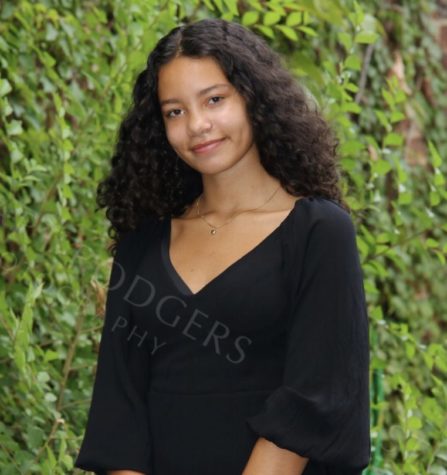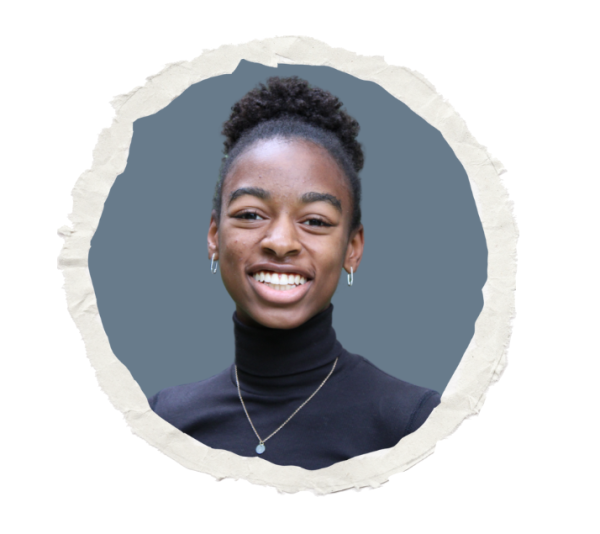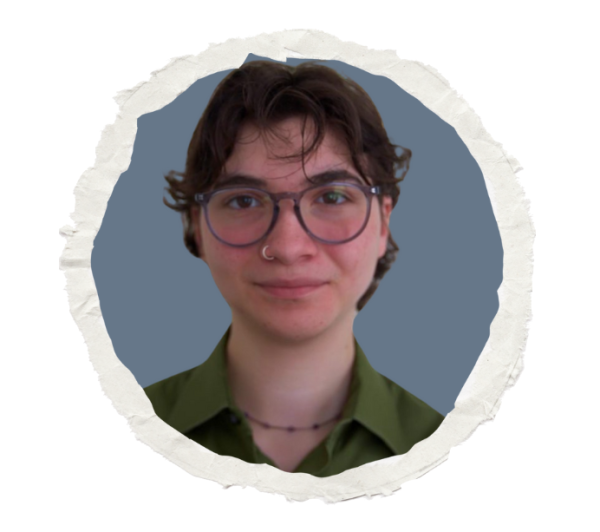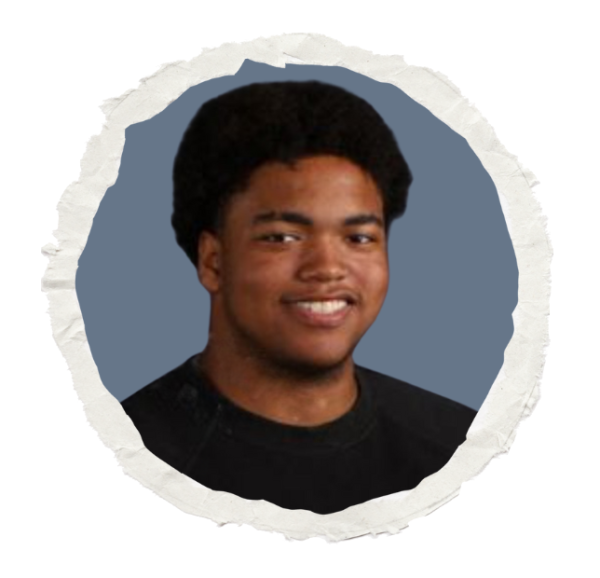Opinion | You can’t stay neutral in times of injustice
October 20, 2020
In times of injustice, I’m always perplexed by the lack of acknowledgment and care from others. When we finally talk about the racial injustices devouring our country, many of my peers and much of society lack engagement or interest. When confronted, many of them claim to be “neutral,” or claim that they “don’t care.” My response to this is “Why?” Why are others not as outraged as I am? Why do my peers choose to remain silent when their voices are the ones more likely to be heard? Announcing you have no opinion when people’s lives are at risk exposes a great amount of privilege. The pure ability to simply look away, turn off the TV or choose not to worry about humanitarian and social justice issues proves this privilege.
The silence from peers in this fight speaks volumes, and it doesn’t go unnoticed. Not only are you able to present your privilege, you’ve chosen to take the side of the oppressor. As Desmond Tutu once said, “If you are neutral in situations of injustice, you have chosen the side of the oppressor.”
This quote is very applicable today, because those staying neutral have chosen to take the stance that there is nothing for them to do, simply because they don’t care enough to do something about. By aiming for neutrality, they’re telling people advocating for basic human rights to hide their true values for their comfort, while simultaneously giving power to the current, unjust systems.
Often, these same non-BIPOC people will claim to be allies, making their silence more questionable. Seeing people who call themselves “allies” chant the n-word because it was just “in a song,” dance to Black music or use Black slang, but then simultaneously never stand up for Black lives, means they’re choosing to participate in Black culture only when it’s convenient for them. This is not only still tolerating racism; it’s quite literally the opposite of being an ally. These people also tend to show a surge of support for the Black community, but then get burnt out once they realize that oppression is in the water of every facet of american society that they choose not to be bothered.
When the conversations became packed with information, resources and ways to help they cut it short. When they get called out for not contributing, they blame it on this exhaustion. It may be tiring to discuss racism, but it’s even more tiring to experience it.
Some are only vocal when the issue pertains directly to them. While you get to jump in when it works best for you, Black advocates must consistently fight for justice. With every new name that becomes a hashtag, we’re reminded that this country doesn’t advocate for us. With the growing support of Black Lives Matter (BLM) this year, many new conversations have taken place. Conversations we’ve grown up with. The lessons, conversations and harsh realities don’t end at a simple class discussion. They fill our lives no matter how hard we try to find peace amongst them, and though it becomes frustrating, it’s why we have to continue to fight.
“Advocating for racial justice is literally just advocating for everyone in our society to have equal and equitable rights, regardless of what they look like or how they identify,” says Kate Iverson, ETHS Civics, Humanities and Economics teacher. “There is so much to be gained from advocating for this, especially as a young person. You gain a more concrete sense of morality, for one. We see daily the effects of oppression put onto people of color in our society. To go out and make your voice heard against that injustice is a powerful experience acknowledging what side of history you’re on, and most importantly, helping your fellow [human.]”
So, why are people remaining neutral? Apart from pure ignorance, politicizing BLM can often contribute to fewer people fighting for justice. By viewing BLM as a political movement, they’re giving themselves a poor excuse to stay out of the uncomfortable conversations, lessons and protests being held. Rather than taking the time to educate themselves, they blame their lack of interest in politics for their ignorance. On top of this, it becomes degrading. You do not need to be a stereotypical liberal-minded voter to see the blatant inequalities in our country. In fact, USA Today reports that, “The prominent Black Lives Matter Global Network did not meet any criteria for a ‘partisan political group,’ in part because the group says it will fight against officials from both parties who do not share its beliefs.”
Since when did equality become political? BLM advocates are not asking people to vote a certain way, they’re asking for Black lives to not be killed due to the color of their skin. There is simply nothing political about someone demanding that their life, at the very least, matters. Overall, advocating and fighting for Black lives doesn’t equal being a political activist.
A common form of staying neutral comes with the statement, “I don’t really want to pick a side.” Which sides are you referring to? The one that believes Black people should be treated like human beings, or the one that believes Black people shouldn’t fight for justice and equality?
Others just seem to not know what to say or do. Quite frankly, this is understandable, as for many this is the first time getting involved with racial injustice. However, there are countless resources for you to educate yourself, and no reason not to actively use them. Your Black scholars and non-scholars have podcasts, books, websites and more for you to gain greater knowledge, and, eventually, be able to reopen some of these conversations. When you choose to not take advantage of these resources is when it becomes a problem.
Martin Luther King Jr. said, “The hottest place in Hell is reserved for those who remain neutral in times of great moral conflict… [an individual] who accepts evil without protesting against it is really cooperating with it.”
Within Evanston’s predominantly liberal bubble, this neutrality is still present. I’ve had class discussions where I’m finally able to bring up the topic of racism, and the conversation immediately shifts because we’re getting “too political.” Or, it simply feels like me and the other Black students are the only ones that truly care, while my white peers’ conversations start and end with “It’s so unfair.” Yes, it’s unfair, and that’s exactly why you need to take accountability and action rather than simply leaving it at that. The question now is what to do.
“This can look like many things as simple as a conversation with a family member, or getting out there to protest the injustice. You gain a sense of accountability—in some way we have all either benefited or suffered from this system we’re living in. What are you doing or what will you do to help make that right if you’re more on the side of the benefitter, for example?” says Iverson.
First, continuously check yourself and times you have chosen to remain silent. How has this impacted those around you, and what can you do to better yourself? You may not have believed it pertained to you, but within a community like Evanston, you have to show up for everyone. Second, never be afraid to speak out about any injustice. With lives at risk even within our community, we can’t afford to have people turn their back when it matters the most. Also, share voices and work of individuals who have been committed to exposing injustice. Taking a stand may be challenging, but it’s necessary if we want to dismantle the injustice faced in our country every day.





















Francine Joy Allen • May 11, 2022 at 5:22 am
I’m so glad to see such insightful writing about the issue of racial injustice in The Evanstonian. I attended ETHS for my sophomore and junior years, way back in 1981-1983, and over my life I still see racial injustice,
which, in fact, appears to have increased in recent years. I try to share with other white and privileged people my own journey of realization of the racial inequalities that are still perpetuated to this day in America.
Back in high school I was appalled at the fact that Evanston, as a community, had sharp wealth-poverty divisions, and that these divisions so obviously correlated to the color of one’s skin. I began to understand that this socioeconomic division created an achievement gap because working parents who are low-income often were not able to give their children the amount of time and attention which more privileged Evanston kids received. I also began to realize that low-income people lived in fear of violent crime every time they left home (and in Evanston and in the rest of this country income still correlates closely with race, just as it did when I attended Evanston schools decades ago).
Admittedly it took several more years before I realized the impact of institutional racism, such as housing discrimination and unequal treatment by law-enforcement and the justice system. Nonetheless my high school realizations helped me to understand what I had struggled to understand during elementary and middle school in Evanston when all students had access to the same enriching classes in language, science, the humanities, art, drama, music, etc. Such enrichment isn’t necessarily enough if your home-life is unstable because your parents or caregivers aren’t able to spend much time with you because they must work irregular hours to make ends meet, or because they are always watching over their shoulder in fear of violence by law-enforcement and the legal system as well as by street crime, or because they don’t have access to safe, affordable housing. As a white, privileged teenager in the 1980s I still had a lot to learn in order to fully understand what Black Americans and other people of color have been and still are are up against. I’ve since come to understand the history of housing discrimination and denial of opportunities (eg the Post-WWII G.I. Bill gave higher education opportunities only to white veterans, while the service and sacrifice of veterans of color was largely ignored). I’ve come to understand more about police brutality in largely neighborhoods of color – a brutality frim which I’ve been shielded by white privilege. I also came to understand that most low-income people are not looking for a hand-out, but often work around the clock at multiple jobs, struggling to find enough time to take care of their own health, to spend time with their families, to vote in elections unless they can access access early voting or absentee ballots.
I think that privileged people ought to understand that institutional racism did not end with the end of slavery or Jim Crow, as too many white people of my acquaintance tend to think. Rather people of color, especially African Americans, continue to face discrimination in housing, job-opportunities, access to public transportation, access to cultural and continuing education resources, healthcare and healthy food. Other difficulties include environmental racism and continuing institutional prejudice and stereotyping which too frequently leads to the false assumption that people of color – especially young Black men, are up to no good. This stereotype leads to Black young people facing punitive and authoritarian handling from their preschool years (when teachers and school administrators often fail to provide the positive guidance and nurture that they might extend to white children) all the way through adulthood when law enforcement and the legal system are harsher on them then they are to white people – often on only the suspicion of a crime, rather than actual proof of one.
So I try to donate my money and time to ensuring voting access to Americans who have erratic work-schedules, or lack transportation to the polls. I demonstrate, donate money, and sign petitions against environmental realism, in favor of safe and affordable housing, in favor of equal treatment under law, etc. And I continue trying to talk to white or otherwise privileged people about my own journey from ignorance to awareness. It is a journey that is ongoing, but one to which I am committed.